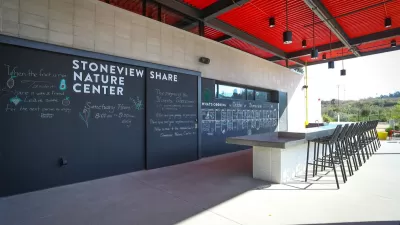A newly released report by the National Recreation and Park Association (NRPA) reveals the state of diversity, equity, and inclusion (DEI) activities at park agencies across the U.S.

Given the significant impacts and frequent interactions park agencies have on and with the public, they are in a unique position to champion efforts that advance diversity, equity, and inclusion (DEI). However, there are gaps in how these agencies understand and address systemic racism, unfair power structures, and cultural competency and humility which affect DEI and access to quality park and recreation spaces and programs.
In April 2021, the National Recreation and Parks Association (NRPA) published a report, "Diversity, Equity and Inclusion in Parks and Recreation," which highlights the state of DEI activities at park and recreation agencies across the United States. Results from a 14-question survey offer a snapshot of agency DEI activities, professional development opportunities provided to staff, and the challenges organizations face in promoting these practices. Some of the key findings include:
- One in three park and recreation agencies currently have formal DEI programs, and another third intend to establish such activities within the next two years.
- About 62 percent of agencies serving more than 100,000 residents have established formal DEI activities, compared to a quarter of agencies serving 50,000 or fewer people indicating the same.
- Whether or not they have a formal DEI program, nine in ten park and recreation agencies currently have established activities and policies that promote DEI practices.
- The most common DEI activity is the development of hiring practices and policies (reported by 66 percent of survey respondents), followed by including an expressed commitment to DEI in foundational documents, such as vision and mission statements and strategic plans (50 percent).
- About 37 percent of park and recreation leaders anticipate conducting an equity assessment within the next two years.
- Agencies located in more populous areas are more likely to have conducted a DEI assessment—17 percent of agencies that serve more than 100,000 people compared to just six percent of agencies that serve less than 50,000 people.
- The most common methods for staff DEI education are webinars and in-person trainings.
For additional information, please review the source article and the report.
FULL STORY: Diversity, Equity and Inclusion in Parks and Recreation

Planetizen Federal Action Tracker
A weekly monitor of how Trump’s orders and actions are impacting planners and planning in America.

Chicago’s Ghost Rails
Just beneath the surface of the modern city lie the remnants of its expansive early 20th-century streetcar system.

San Antonio and Austin are Fusing Into one Massive Megaregion
The region spanning the two central Texas cities is growing fast, posing challenges for local infrastructure and water supplies.

Since Zion's Shuttles Went Electric “The Smog is Gone”
Visitors to Zion National Park can enjoy the canyon via the nation’s first fully electric park shuttle system.

Trump Distributing DOT Safety Funds at 1/10 Rate of Biden
Funds for Safe Streets and other transportation safety and equity programs are being held up by administrative reviews and conflicts with the Trump administration’s priorities.

German Cities Subsidize Taxis for Women Amid Wave of Violence
Free or low-cost taxi rides can help women navigate cities more safely, but critics say the programs don't address the root causes of violence against women.
Urban Design for Planners 1: Software Tools
This six-course series explores essential urban design concepts using open source software and equips planners with the tools they need to participate fully in the urban design process.
Planning for Universal Design
Learn the tools for implementing Universal Design in planning regulations.
planning NEXT
Appalachian Highlands Housing Partners
Mpact (founded as Rail~Volution)
City of Camden Redevelopment Agency
City of Astoria
City of Portland
City of Laramie





























